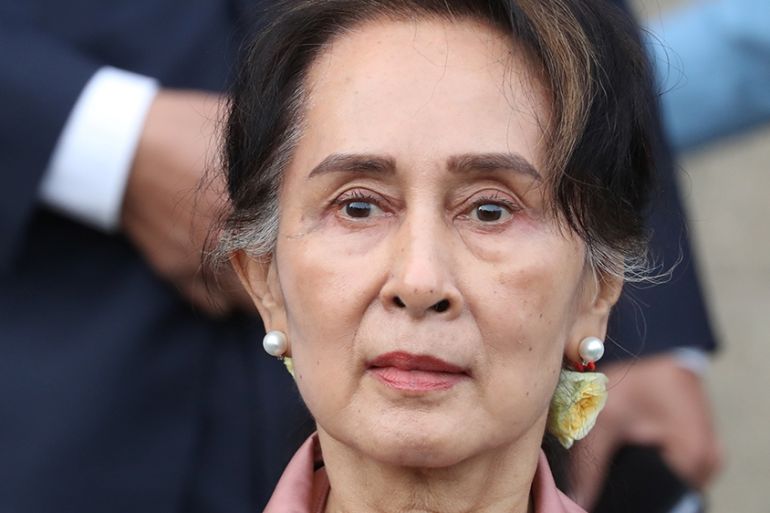After ICJ ruling, Myanmar denies genocide against Rohingya
In a statement, government fails to use word ‘Rohingya’ and rejects accusations of genocide after case at top UN court.

In response to an international court’s decision ordering Myanmar to take emergency measures to prevent the genocide of the Rohingya, the country’s government responded by saying that there has been “no genocide in Rakhine” – the state from which most of the Muslim-minority group hails.
Rights groups and members of the Rohingya minority have celebrated Thursday’s ruling from International Court of Justice (ICJ) judges.
Keep reading
list of 3 itemsMyanmar to release its Rohingya crackdown investigation results
ICJ to rule on emergency measures in Myanmar genocide case
But a statement released by Myanmar‘s Ministry of Foreign Affairs said it was “important for Myanmar that Court [ICJ] reaches a factually correct decision on the merits of the case”, and condemned human rights organisations that it accused of presenting a “distorted picture” of the situation in Rakhine.
Those groups, the statement said, had “affected Myanmmar bilateral relations with several countries” and hampered efforts for “sustainable development” in the northwest province.
While acknowledging “war crimes had occurred”, the statement said “there has been no genocide in Rakhine.”
While defending her country at the ICJ in December, Myanmar leader Aung San Suu Kyi, in a 30-minute speech, failed to use the word “Rohingya” once.
Critics said her refusal to use the word was part of Myanmar’s attempt to strip the minority of their identity and rights.
Again on Thursday, the word “Rohingya” was absent from the Ministry of Foreign Affairs’ statement.
‘A great day for hundreds of thousands of Rohingyas’
The ICJ case was filed by Muslim-majority The Gambia, which had asked the court to impose emergency measures following the Myanmar army’s violent 2017 crackdown that forced around 740,000 Rohingya to flee to neighbouring Bangladesh.
The Hague-based court, which is the principal judicial organ of the United Nations, ordered Myanmar to take urgent and “provisional measures” to protect its Rohingya population from genocide.
Provisional measures are steps aimed at preventing further harm, and come as the first step in the legal case.
Legal experts have applauded the court’s decision.
Reed Brody, a commissioner at the International Commission of Jurists who was instrumental in the prosecution of the former Chadian dictator Hissene Habre, told Al Jazeera: “This is a great day for the hundreds of thousands of Rohingyas who have been displaced, killed and raped. The UN’s highest court has recognised their suffering.”
The ICJ’s orders are legally binding.
Brody said the fact that the decision was unanimous would add weight to the court’s measures.
|
|